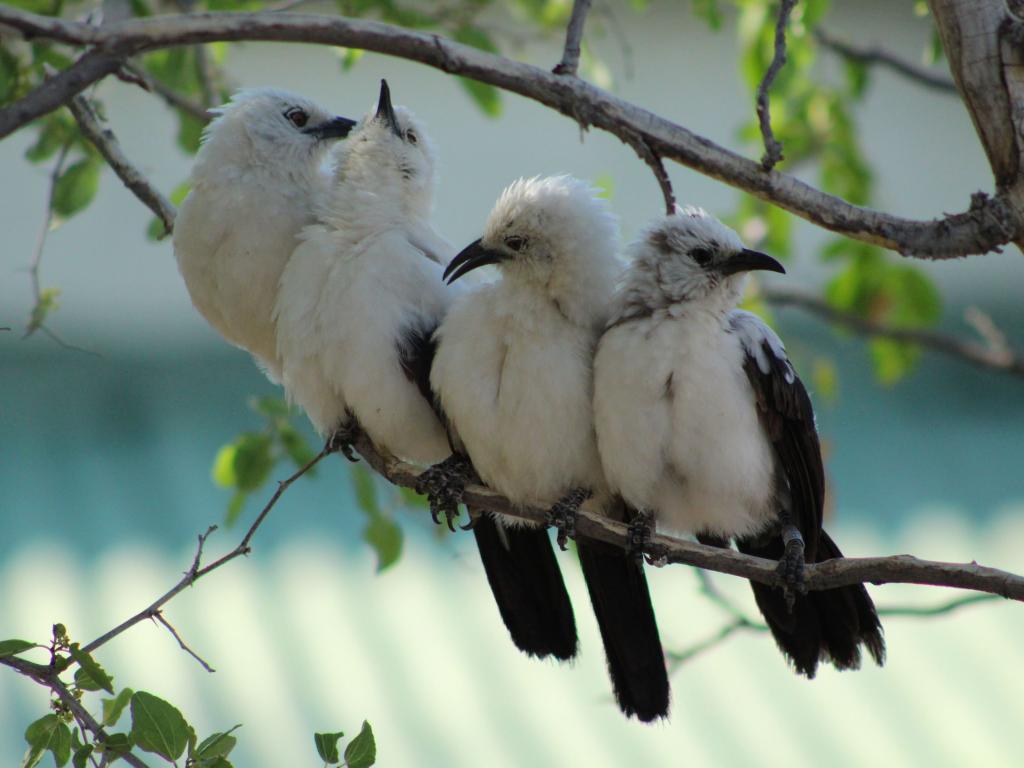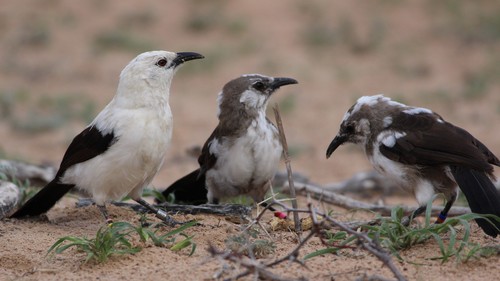More new papers from the Hot Birds Project team


For highly social species like Sociable Weavers, social network cohesiveness is important for transfer of information between individuals and therefore has benefits for individual fitness. In this paper, Dr Rat and team show that social cohesiveness might be vulnerable to climate change, as extreme and variable temperatures were associated with the breakdown of network cohesiveness and emergence of isolated individuals in a study population of Sociable Weavers in the Kalahari.
Rat, M., Mathe-Hubert, H., McKechnie, A.E., Sueur, C. and Cunningham, S.J. 2020. Extreme and variable environmental temperatures are linked to reduction of social network cohesiveness in a highly social passerine. Oikos. https://doi.org/10.1111/oik.07463.

Theory suggests that social species which breed cooperatively (like Southern Pied Babblers) could be buffered from some of the effects of climate change, because individuals in co-operative groups can share the workload of, for e.g. raising chicks, thereby buffering impacts of harsh conditions. However, recent tests of this hypothesis suggest that in fact it is not so: here Amanda Bourne and team show, using a 15-yr dataset, that group size cannot buffer the strong negative impacts of high temperature and drought on survival in Southern Pied Babblers. The combination of drought and high temperatures is particularly lethal, with these conditions resulting in low interannual survival even in established breeding adults, with serious implications for population persistence under climate change
Bourne, A.R., Cunningham, S.J., Spottiswoode, C.N. and Ridley, A.R. 2020. Hot droughts compromise interannual survival across all group sizes in a cooperatively breeding bird. Ecology Letters. https://doi.org/10.1111/ele.13604.
